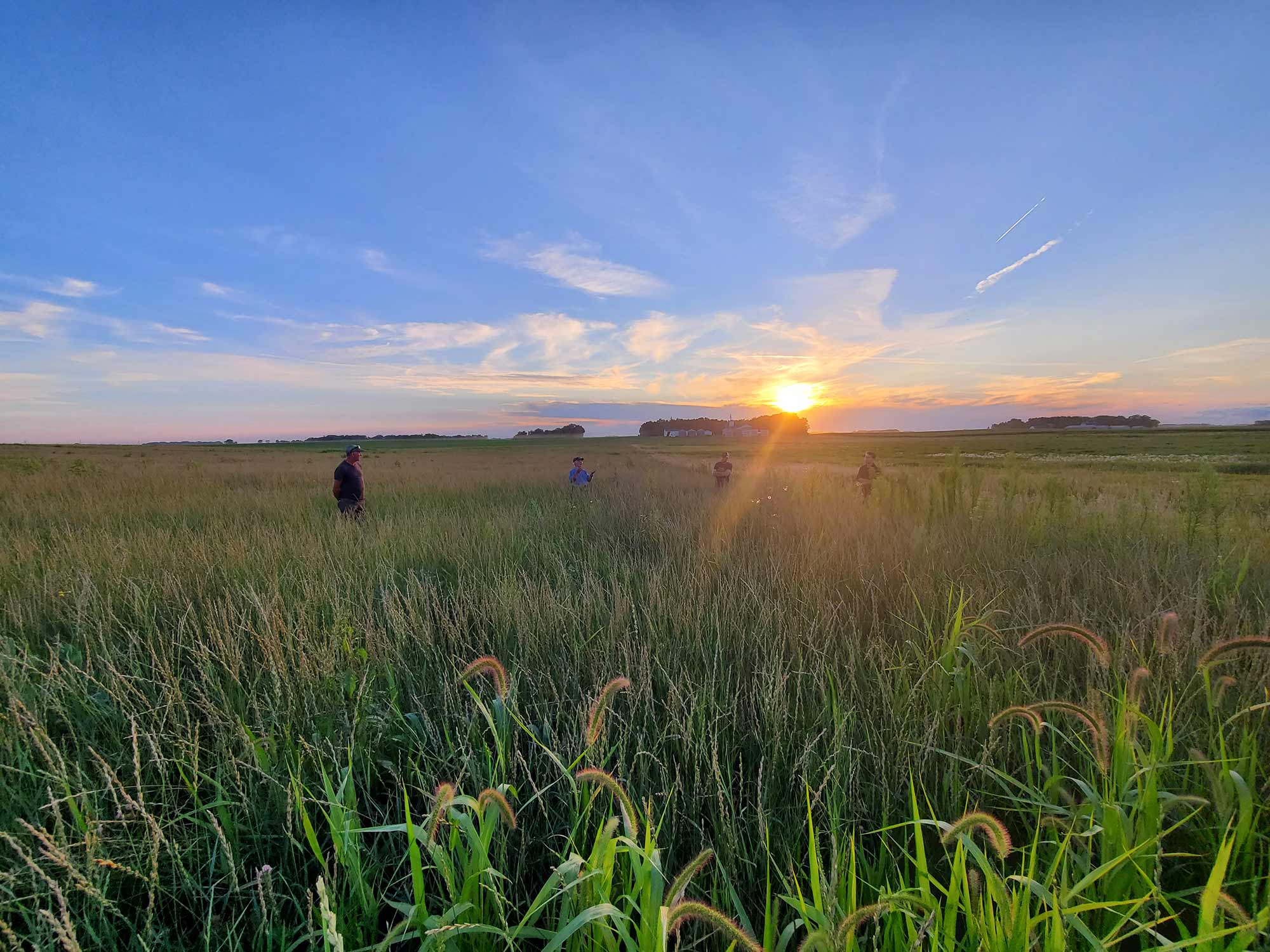Stories & Videos
A model for farmer-driven watershed improvement asks, “What next?”

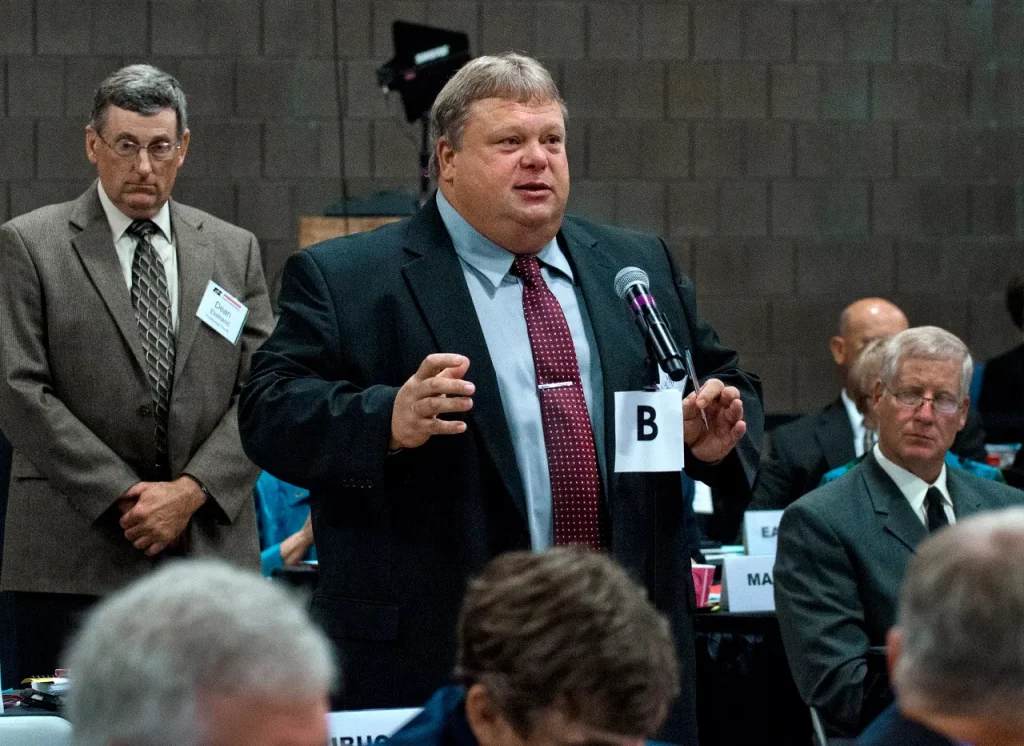
Jeff Pape and his family chatted over dinner in a Dyersville, Iowa café when a stranger and young boy approached their table.
“Excuse me,” said the stranger, “but I’d like to introduce my son to the man who’s responsible for cleaning up our stream.” The young dad went on to describe how he’d played near the creek as a child but couldn’t see the bottom then, and how his own son plays in and around it now with no objections from him, because it’s clean.
For Pape, it was a moment of quiet satisfaction—one he won’t forget—because he’s farmed with water quality and soil health in mind for many years, and does all he can to show up when asked to encourage others. Pape’s family has lived near Hewitt Creek for generations, so there is a connection of the heart. But he also knows first hand that using practices like no-till planting, grass waterways, buffer strips, precision nutrient management, terraces, and cover crops makes good business sense.
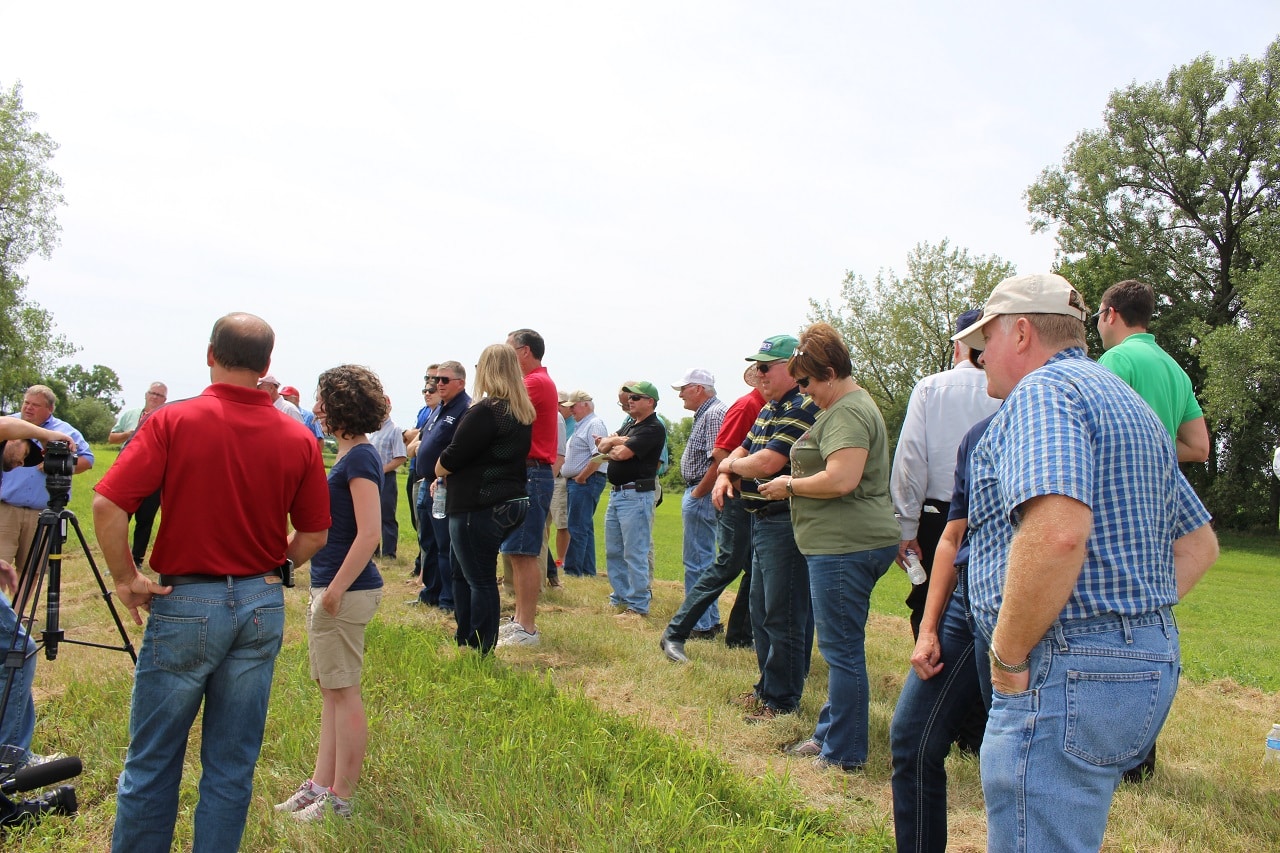
Coming to terms with stream impairment
Jeff Pape started advocating for better water quality and streams in his home area in 2004 after Hickory Creek, a tributary to Hewitt Creek—the stream flowing through his land and the legendary “Field of Dreams” property nearby—was listed as impaired in 2002. Assessments by Iowa Department of Natural Resources showed high levels of phosphorus and nitrates in the water.
“John Rodecap, an Iowa State University Extension watershed specialist, put together our first meeting,” says Pape. “He did a good job explaining how nutrients move, and what causes the conditions that were present in our stream.”
Rodecap says, “Sixty to 70 people attended that first meeting. But when I explained the data the majority said, “We don’t believe it.”
Stepping up
Five producers already committed to soil health and conservation gathered soon after at the Pape farm to discuss how to proceed. Rallying around funding offered by Farm Bureau Federation, they considered how a core group of 15 to 20 people and neighbors they recruited could begin to make new practices normal.
Formal meetings followed in nearby New Vienna, Iowa. Neighbors decided together how to focus their work, and who was in charge. They agreed to lead themselves, without government control over decisions. To address data-related questions from the first meeting, Farm Bureau funds paid for testing technologies to measure the environmental and economic results of various field and farm management practices.
“After streams were monitored,” says Rodecap, “neighbors decided the data was correct. They’d drawn samples from their own streams, so then they were determined to solve the problem.”
As farm operators paid attention and gained new nutrient management expertise, the face of the watershed changed. A no-strings-attached grant from the State of Iowa energized activity driven by incentives the local group determined would make the most difference in Hewitt Creek.
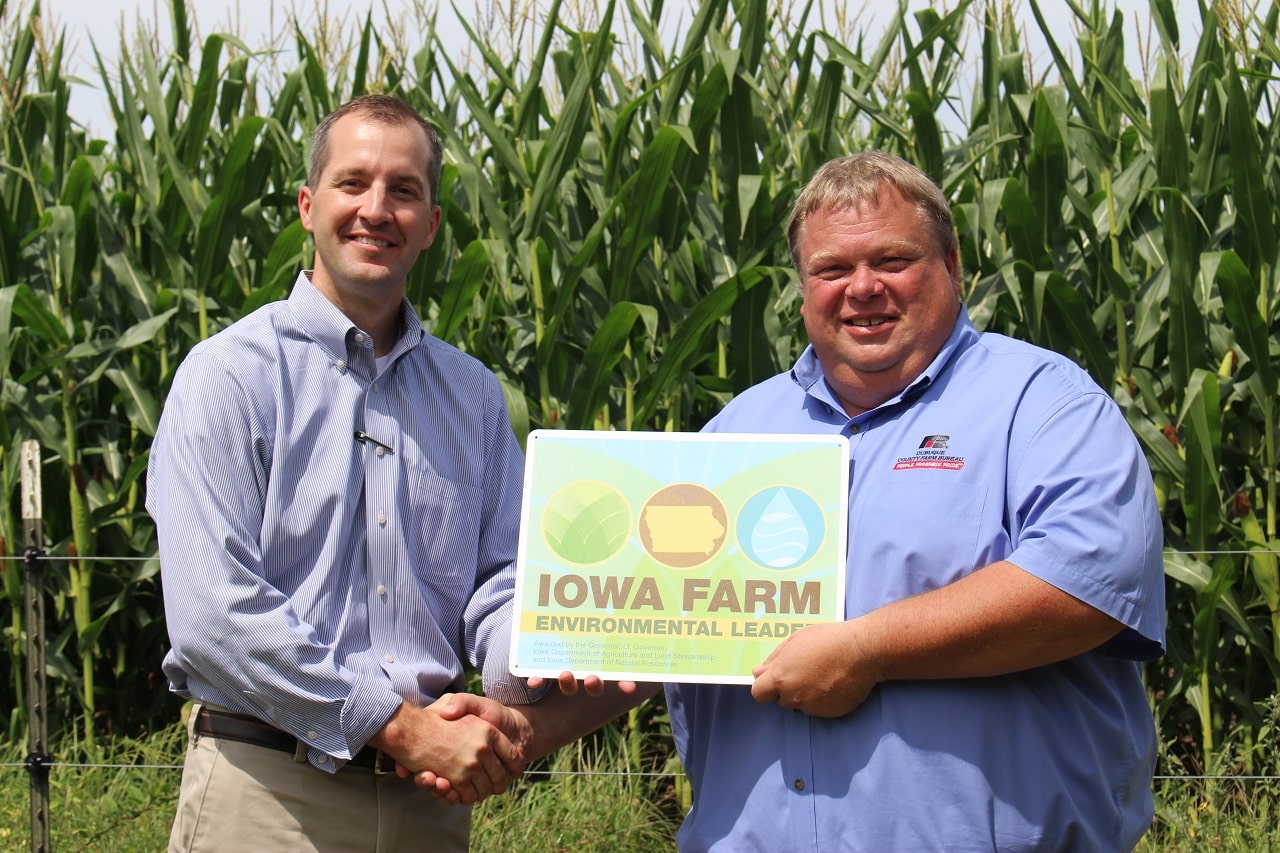
Neighbors normalize new practices
Conversations with neighbors at church, in the bar, and over the fence made a difference. One landowner who said at the beginning, “There’s nothing I can use here!” jumped into contour farming, cover crops, terraces, and reduced tillage in a big way more than 12 years later, because adjacent farms had made those practices normal.
Miles and miles of grass waterways, no-till and contour farming, cover crops, and better manure and nutrient management improved Hewitt Creek’s condition, but not overnight. After five years, results were promising. After seven, gains were realized and measurable improvements followed. Growers looked eagerly for year-end reports that fed healthy competition. Some who thought they were doing what was needed to improve water quality were surprised to see they’d missed the mark. Says Pape, “It made them get smarter and try harder.”
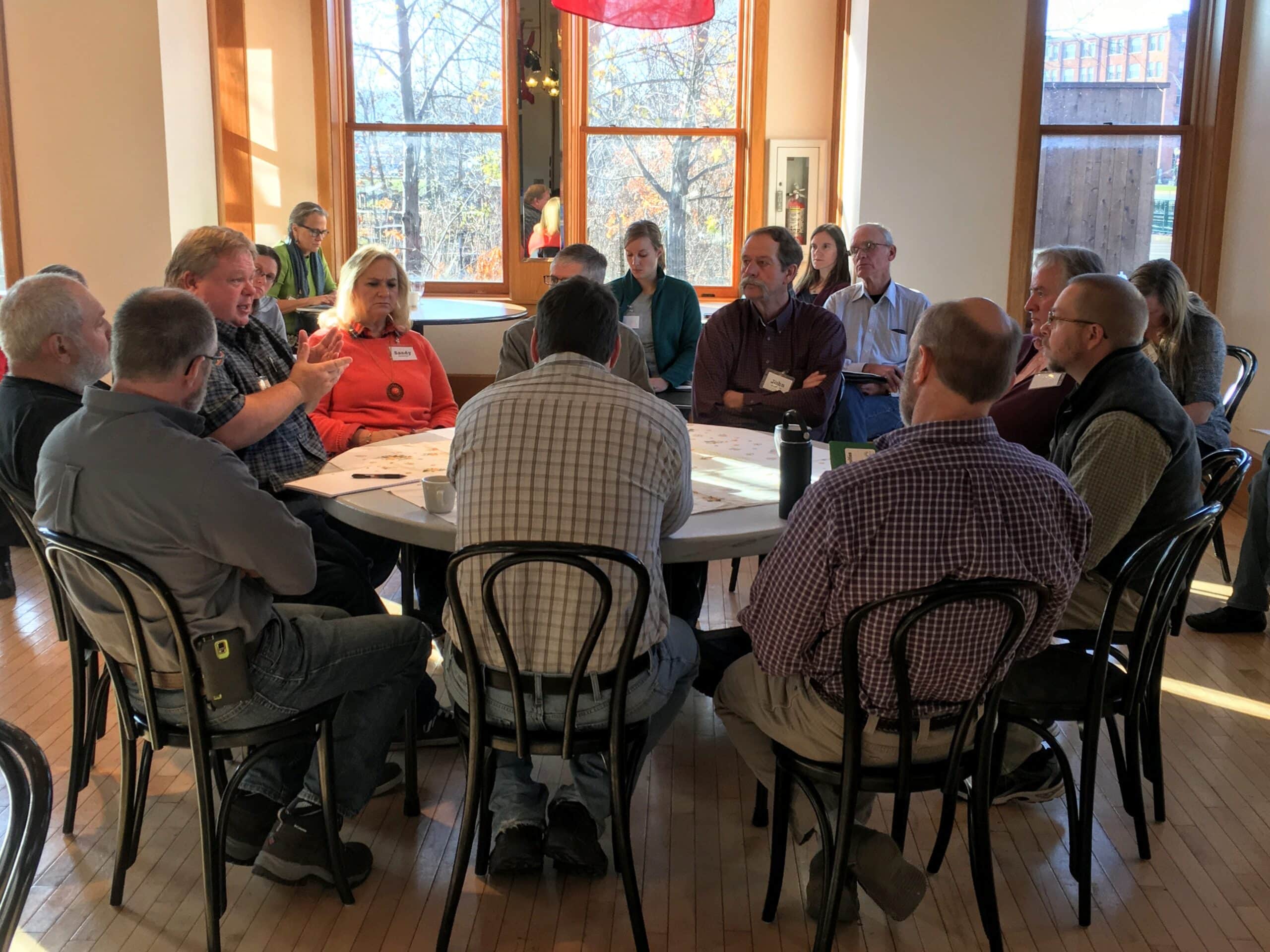
Next step, new strategy needed
Most operators who got involved in the Hewitt Creek Watershed Initiative stayed involved, but as years wore on many had completed tasks that made a difference for their operations and ran out of new options. New practices continued overall, but fewer people showed at meetings.
“We addressed our core problems at a reasonable scale by taking on the most affordable practices first,” says Pape. “Now we’re faced with more costly investments like terraces, manure holding facilities, and addressing stream bank erosion. For those things we need a new strategy, systems to manage and encourage investments, and reasonable incentives to get to the landscape we really want to see.”
Like a natural system, the initiative in Hewitt Creek watershed has waxed and waned, while holding most of its gains. Technologies exist now to make the watershed diverse, productive and resilient, and to further improve water quality. But do we have the will to persevere at local, state, and national scales to make it happen?
“We have proof we’ve made a difference,” says Jeff Pape, “and if you say you can’t, I know you’re wrong. Find your area’s top four to five progressive farmers and start there. Start a conversation with your legislator. Reach out to an organization you know. Invite and listen to neighbors. I know we can do better.”
— Story by Nancy North
Fishers & Farmers Partnership for the Upper Mississippi River Basin supports collaborative, local, farmer-driven work for healthy streams, farms and fish habitat. For more than a decade we have provided funds to projects in Iowa, Illinois, Minnesota, Missouri and Wisconsin, as well as connection and leadership development for local teams, including this Iowa project. Learn about Fishers & Farmers Partnership funding and apply here.
